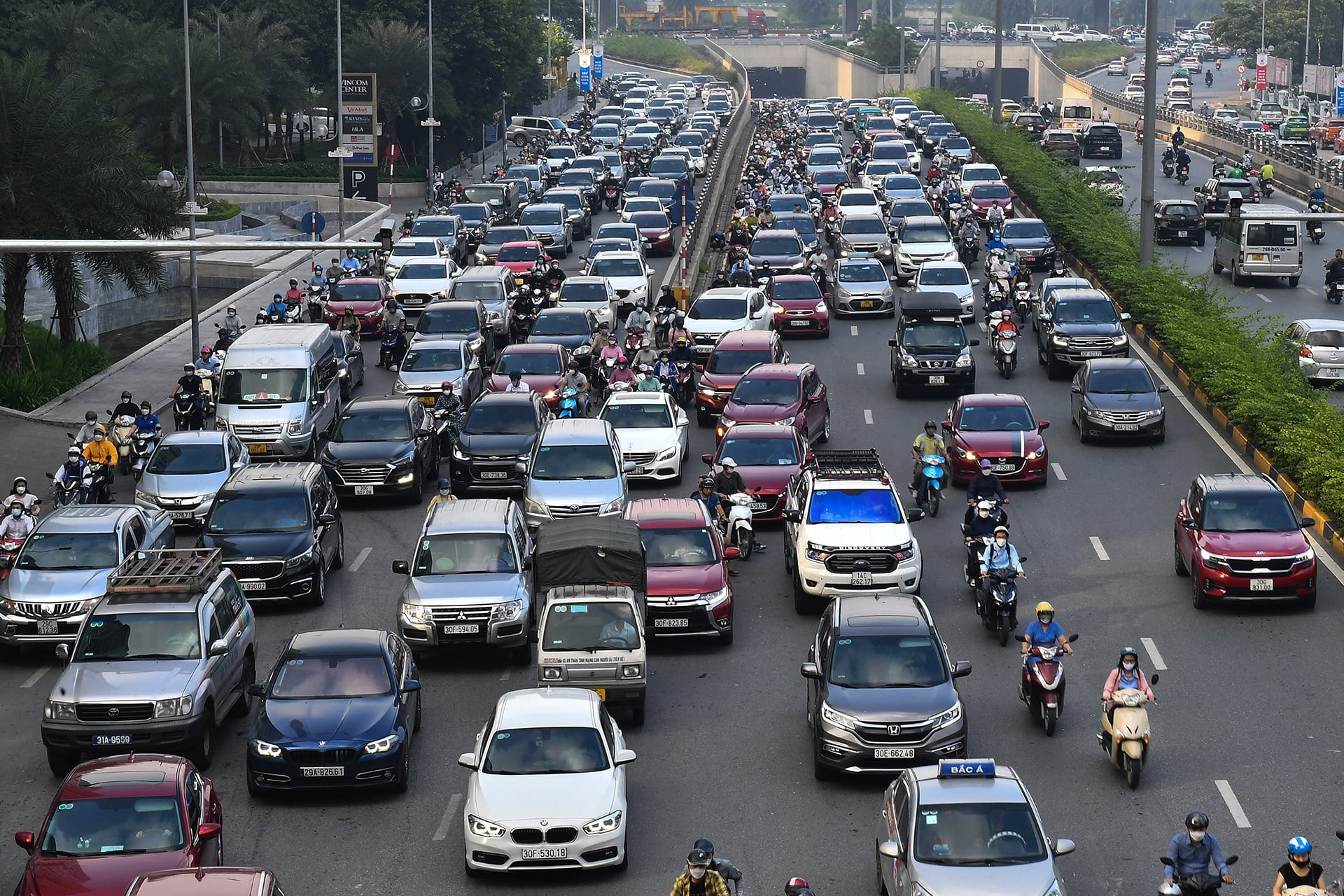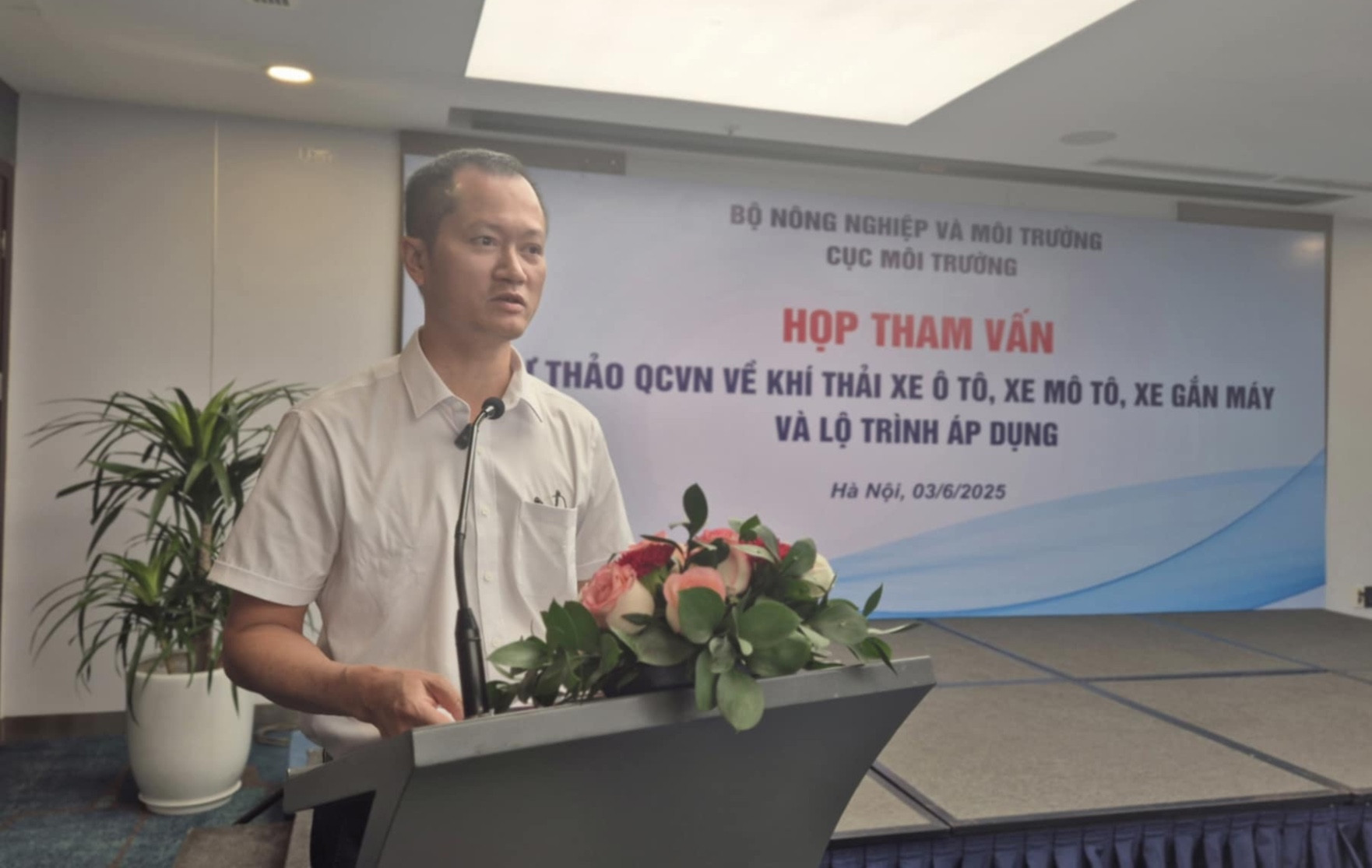At a consultation workshop on vehicle emission control held on June 3, Le Hoai Nam, Deputy Director of the Environment Department under the Ministry of Agriculture and Environment, stated that new draft regulations for vehicle emissions - including those for cars and motorcycles - are in their final stages and expected to be issued within the next two weeks.
The Ministry has been actively implementing environmental protection and traffic safety laws, particularly emphasizing emissions control for motorized vehicles, especially motorcycles and scooters, which are key elements in the country’s action plan.
Tightening emission regulations for cars in major cities

According to the Environment Department, the Prime Minister’s draft decision on the emission standard roadmap for cars is nearing completion.
The draft stipulates that, beginning in 2030, any car that does not meet emission standards will not be allowed to operate in Hanoi or Ho Chi Minh City.
This regulation will apply only to internal combustion engine vehicles (gasoline or diesel) and excludes specialized vehicles serving national defense and security under the Ministry of Defense and Ministry of Public Security.
The emission standard roadmap is structured based on the year of vehicle manufacture and region of operation. Specifically:
Vehicles manufactured before 1999: level 1 emission standard
Vehicles manufactured from 1999 to 2016: level 2
Vehicles manufactured between 2017 and 2021: level 3 nationwide from Jan 1, 2026; level 4 in Hanoi and HCMC from Jan 1, 2027
Vehicles manufactured from 2022 onward: level 4 nationwide from Jan 1, 2026; level 5 nationwide from Jan 1, 2030; level 5 in Hanoi and HCMC from Jan 1, 2028
From January 1, 2030, all cars operating in Hanoi and HCMC must meet at least level 2 emission standards. Non-compliant vehicles will be prohibited from circulation in these two major cities.
Motorcycle emissions to be phased in gradually
The Environment Department said the draft has been reviewed multiple times by the Vietnam Register and related technical units to ensure its feasibility and consistency in implementation.
The roadmap for controlling motorcycle emissions is divided into three phases:
Phase 1: Begins January 1, 2027, in Hanoi and HCMC
Phase 2: Expands nationwide to other centrally governed cities and provinces from July 2028
Phase 3: Full nationwide implementation after 2030
This phased approach is considered essential due to the need for proper inspection infrastructure, trained personnel, and equipment - especially since this will be Vietnam’s first attempt to regulate motorcycle emissions.

The emission levels are also based on manufacturing years:
Manufactured before 2008: level 1
From 2008 to 2016: level 2
From 2017 to June 30, 2026: level 3
From July 1, 2026, onward: level 4
For scooters, a similar roadmap applies, with level 4 starting from July 1, 2027.
In inner-city Hanoi and Ho Chi Minh City, beginning in 2030, all vehicles must meet at least level 2 standards. This policy aims to gradually eliminate outdated, high-emission vehicles.
Authorities stressed the need for a reasonable transition to avoid negatively affecting citizens, especially vulnerable groups and workers who rely on older vehicles for their livelihoods.
Over 70 million motorcycles contribute heavily to urban pollution
Nam noted that more than 70 million motorcycles and scooters are currently in circulation across Vietnam. These are among the leading sources of air pollution in densely populated urban areas.
Until now, emissions from these vehicles have not been effectively controlled due to various objective and subjective factors. For the first time, the issuance of specific emission standards for motorcycles is expected to mark a turning point in Vietnam’s air pollution control efforts.
In parallel, the Ministry is reviewing and updating the emission roadmap for cars to replace Prime Minister’s Decision No. 16/2019. The new draft roadmap raises emission standards, particularly in high-density, heavily polluted cities.
Nam emphasized that motorcycles and scooters are essential to daily life for most Vietnamese. Therefore, the introduction of new standards must be done thoughtfully to minimize social disruption.
“We understand that controlling motorcycle emissions will affect the majority of citizens, so the approach must balance environmental protection with social impact,” he said.
Vu Diep